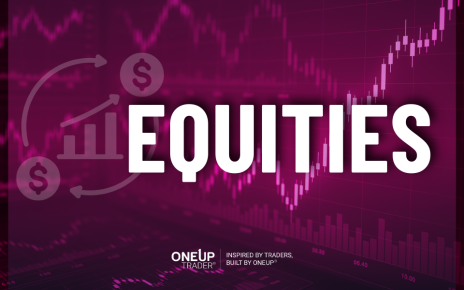- The New York Fed manufacturing activity index fell sharply to -31.8 in May.
- Investors are awaiting the results of the US debt ceiling meeting on Tuesday.
- Eurozone industrial production fell by a larger margin than predicted in March.
US equities closed slightly higher on Monday as the S&P 500 and Dow had modest gains. However, the New York Federal Reserve’s “Empire State” index, which measures manufacturing activity, fell sharply to -31.8 in May, much lower than the anticipated -3.75.

This raised concerns about a possible slowdown in the US economy, which could decrease inflation.
Meanwhile, the ongoing debt ceiling negotiations between the White House and Republicans in Washington also impacted the markets, with a meeting scheduled for Tuesday. However, a deal was unlikely to be reached at that time.
Investors will focus on retail sales, weekly jobless claims, and housing data this week as economic data is relatively light. Due to slowing economic data, markets expect a pause in the Federal Reserve’s interest rate hike cycle.
On Monday, several Fed officials indicated that they expect interest rates to remain high, in contrast to the market’s expectation for a rate cut before year-end. Richmond Federal Reserve President Thomas Barkin expressed doubts about inflation being on a steady downward path. However, he agrees with using a data-dependent approach for additional rate hikes.
Fed Chair Jerome Powell is scheduled to speak on Friday, and investors will closely monitor his comments for any signals about the trajectory of rates for the remainder of the year.
On Monday, European equities climbed as investors evaluated uncertainties surrounding US debt ceiling talks and a Turkish runoff election. The pan-European STOXX 600 index ended 0.3% higher, reaching a two-week high during the session.
This month, the benchmark index has traded within a narrow range as investors look for indications of how long major central banks will continue to hike interest rates. Although banks mostly made gains, Spain’s BBVA shares, among the European banks with significant exposure to Turkey, dropped 4.2%. It seemed like Turkey’s presidential election would go to a runoff vote.
On data, Germany’s wholesale price index experienced a small year-on-year decline in April, marking the first drop since December 2020.
In March, Eurozone industrial production fell by a larger margin than predicted. The output of capital goods plunged, although Ireland’s figures influenced the significant reduction.



